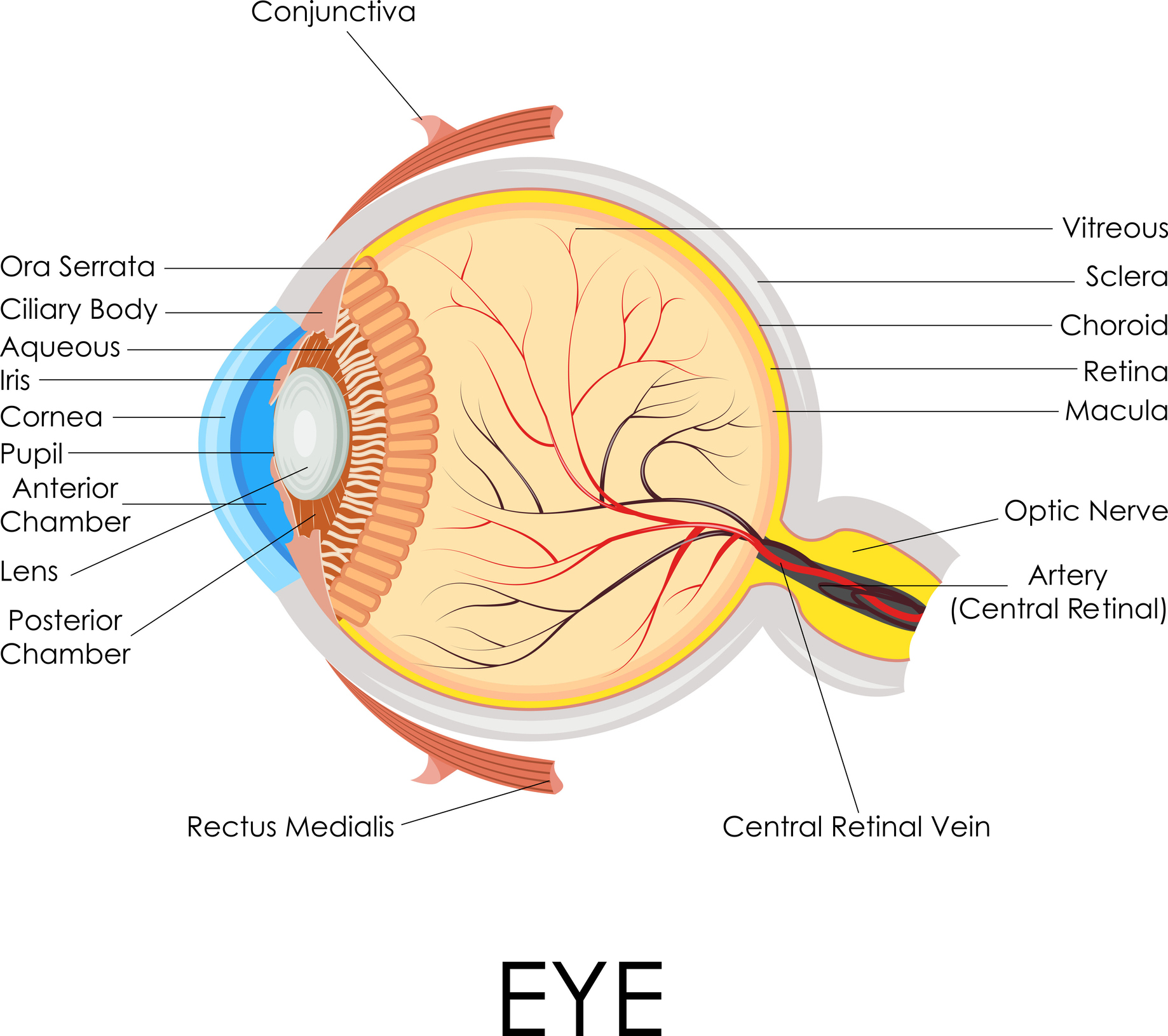Understanding the Sclera: The Protective White of Your Eyes
Delve into the role of the sclera, the outer layer of the eye, in maintaining eye structure and health. Learn about the functions of the sclera, common issues that may arise, preventive measures, and when to seek professional advice. Uncover insights into the importance of scleral health for overall eye well-being.
Overview of Sclera
The sclera, commonly known as the “white of the eye,” plays a vital role in protecting and maintaining the structure of our eyes. Understanding its functions, recognizing potential issues, and adopting preventive measures are crucial for optimal eye health.
Functions of the Sclera
The sclera is the tough, white outer layer of the eyeball, covering almost the entire visible part of the eye. It serves several important functions:
- Structural Support: The sclera provides structural support and maintains the shape of the eye, protecting the delicate internal structures.
- Attachment for Eye Muscles: Six muscles responsible for eye movement attach to the sclera, allowing coordinated eye movements.
- Protection: It acts as a protective barrier, shielding the internal components of the eye from external trauma and injuries.
- Maintaining Intraocular Pressure: The sclera helps maintain the intraocular pressure necessary for proper eye function.
Common Scleral Issues
- Scleritis: Inflammation of the sclera, often resulting in pain, redness, and discomfort.
- Episcleritis: Inflammation of the episclera, the thin tissue layer covering the sclera, leading to redness and irritation.
- Scleral Thinning: Thinning of the sclera may occur due to various factors, potentially affecting the eye’s structural integrity.
- Scleral Hygiene Issues: Infections or injuries affecting the sclera can lead to complications and discomfort.
Preventive Measures
- Regular Eye Exams: Routine eye examinations can detect early signs of scleral issues and other eye conditions.
- Eye Protection: Wearing protective eyewear, especially in activities with a risk of eye injury, can prevent trauma to the sclera.
- Maintaining General Health: Managing underlying health conditions, such as autoimmune disorders, can reduce the risk of scleral inflammation.
- Proper Hygiene: Good eye hygiene practices, including avoiding eye rubbing and using clean contact lenses, can prevent infections and irritations.
When to Seek Professional Advice
- Persistent Redness or Pain: If there is persistent redness, pain, or discomfort in the eye, it’s essential to seek professional advice.
- Changes in Vision: Any sudden changes in vision or the appearance of the eyes should be evaluated by an eye care professional.
- Injuries or Trauma: Immediate medical attention is necessary for any injuries or trauma to the eye or surrounding structures.
Importance of Scleral Health
Maintaining scleral health is crucial for overall eye function and visual well-being. Issues with the sclera can impact the structural integrity of the eye, potentially leading to complications that affect vision and comfort.
Conclusion
In conclusion, the sclera plays a vital role in supporting and protecting the eye. Regular eye care, early detection of issues, and preventive measures are essential for maintaining scleral health. Seeking professional advice promptly in case of any abnormalities or discomfort is crucial for preserving not only the structural integrity of the eye but also the overall health of the visual system.
World Eye Care Foundation’s eyecare.live brings you the latest information from various industry sources and experts in eye health and vision care. Please consult with your eye care provider for more general information and specific eye conditions. We do not provide any medical advice, suggestions or recommendations in any health conditions.
Commonly Asked Questions
Yes, maintaining good eye hygiene, protecting your eyes from injuries, and regular eye check-ups contribute to preventing scleral issues.
In severe cases, scleral issues, if left untreated, may contribute to complications that could impact vision. Early intervention is key.
The reversibility of scleral thinning depends on the underlying cause. Timely intervention can prevent further thinning and complications.
Yes, trauma or injuries to the eye can lead to scleral damage. Seeking immediate medical attention is crucial in such cases.
A balanced diet rich in vitamins and minerals, particularly vitamin C, contributes to overall eye health, including the sclera.
Scleral thinning can occur due to aging or certain medical conditions. Regular eye check-ups help monitor any changes.
The sclera, along with the eye muscles, provides support for coordinated eye movement, allowing us to focus on different objects.
Improper use or extended wear of contact lenses may contribute to scleral issues. Follow proper hygiene and usage guidelines.
Scleritis is relatively rare but can be a serious and painful condition that requires prompt medical attention.
While the sclera is typically white, changes in color can occur due to various factors, including inflammation or jaundice.
news via inbox
Subscribe here to get latest updates !







